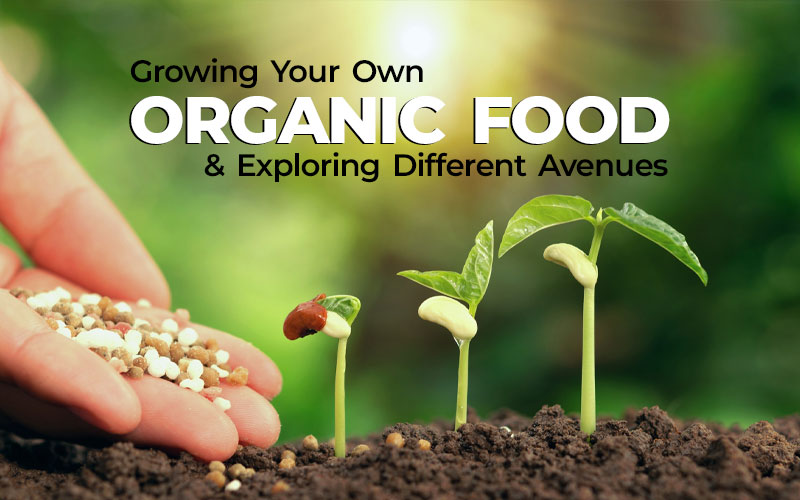Introduction:
Growing Your Own Organic Food: In our fast-paced, technology-driven world, the increasing popularity of organic food is no surprise. People are becoming more conscious about what they consume and the impact it has on their health and the environment.
As a result, growing one’s own organic food has gained significant momentum.
Various avenues like rooftop gardens and community farms offering viable solutions.
This article delves into the world of organic farming, exploring different avenues to help you embark on your own journey towards harvesting fresh, healthy produce right in your backyard.
1. Understanding the Meaning of Organic Farming:
Before diving into the exciting possibilities, let’s begin with understanding what organic farming truly means. Organic farming is a cultivation method that embraces natural processes, avoiding the use of synthetic chemicals, pesticides, and genetically modified organisms (GMOs). It focuses on enhancing soil fertility, promoting biodiversity, and sustainable practices to ensure the production of nutritious and chemical-free food.
2. Rooftop Gardens: Cultivating the Sky:
One innovative way to grow your own organic food, even in the midst of urban jungles, is by utilizing rooftop gardens. These sustainable spaces not only bring greenery to urban landscapes but also provide ample possibilities for growing a wide range of vegetables, herbs, and fruits. We explore the essential aspects of rooftop gardening, such as selecting suitable containers, choosing compatible crops, ensuring efficient drainage systems, and maximizing sunlight exposure.
3. Community Farms: Cultivating Together:
While rooftop gardens are ideal for those with limited space, community farms offer a unique way to cultivate organic food collectively. Joining hands with your neighbors or fellow community members fosters a sense of camaraderie, boosts local food systems, and promotes sustainable agriculture practices. We discuss the benefits of community farming, such as shared resources, knowledge exchange, and increased social interaction, along with tips for starting and managing such initiatives.
4. Exploring Different Avenues: From Hydroponics to Vertical Gardens:
Apart from traditional gardening methods, various innovative approaches have emerged, enabling sustainable organic food production. Hydroponics, an advanced system of growing plants without soil, allows for controlled environments and efficient water usage. Vertical gardens, on the other hand, are perfect for cramped spaces, utilizing walls or trellises to maximize cultivation areas. We delve into the details of these cutting-edge techniques, highlighting their benefits and providing useful tips for getting started.
5. How to Start an Organic Vegetable Garden:
Finally, for those eager to start their own organic vegetable garden from scratch, we provide a comprehensive guide. From choosing the right location, preparing the soil, and selecting appropriate crops to managing pests naturally, we outline the essential steps and considerations for a fruitful and sustainable harvest. With easy-to-follow advice and practical tips, this section equips beginners with the knowledge to embark on their organic gardening journey.
Conclusion:
In a world where we are reconnecting with the source of our food, growing our own organic produce provides a sense of self-sufficiency, improves personal health, and contributes to the well-being of the planet. Whether through rooftop gardens, community farming, or exploring cutting-edge techniques, the avenues for growing your own organic food are diverse and exciting. Embrace the journey towards sustainable agriculture, and enjoy the satisfaction of nourishing your body and soul with truly organic
Know More About: Prince Khanuja & Khanuja Group




